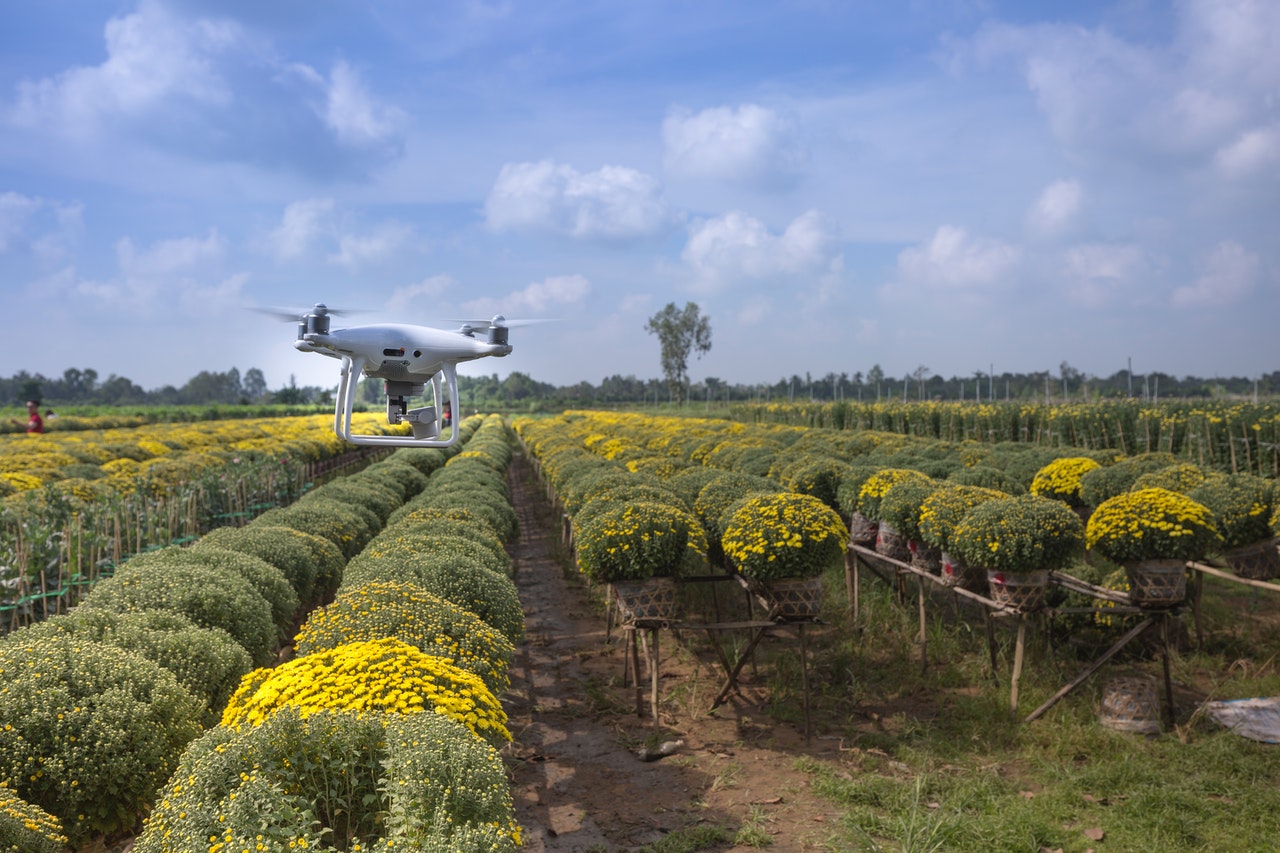Agribusiness is not immune to the challenges encountered in Nigeria’s business environment. Despite the glaring need for food sufficiency in Nigeria, and the untapped opportunities in that sector, agribusiness and agritech startups do not have easy access to loans as the peculiar challenges of their business operations and competition from seemingly more lucrative ventures make lenders reluctant to give loans to agribusiness owners.
We highlight below avenues open to agritech startups to effectively minimize costs and boost operations through tax planning and proper utilisation of incentives.
Tax planning

It is important that every agritech startup should aim to undertake its operations in a manner that minimises its tax exposure without contravening extant tax provisions.
For effective and efficient tax planning, devices and tools like profit shifting arrangements and strategic location of intangible assets such as Intellectual Property (IP) should be deployed. Tax exemptions and tax incentives applicable to the agricultural sector should be explored and taken advantage of.
A proven effective way of tax planning is timely payment of statutory taxes to avoid penalties. Other tax planning tips include deducting tax at source, setting aside tax funds monthly, proper record of financials and organising financials to include depreciation of machinery, minimising cash payments, being aware of basic information and recent developments in the sector such as tax slabs, due dates for filing of tax returns, applicable income tax rates, implication of new tax laws to be introduced and engaging the services of professionals.
Like Farmcrowdy and ThriveAgric, agritech startups are dominant explorers of crowdfunding. Recently, the Nigerian Securities Exchange Commission (SEC) released its proposed regulation on crowdfunding where it proposes a minimum share capital requirement of ₦100,000,000 (~ $250,000)) for crowdfunding.
While government’s position to regulate crowdfunding to protect investors is commendable, there must be conscious effort to construe such regulations in a manner that will not stifle innovation and enterprise. As relevant stakeholders in crowdfunding, agritech startups are advised to engage the government constructively for policy direction to avoid implementation glitches.
Some of the tax returns expected to be filed by startup companies alongside their due dates include:
Companies Income Tax: For newly incorporated companies such as agritech startups, the due date for filing returns is within 18 months from the date of incorporation or not later than 6 months after the end of its accounting period, whichever is earlier.
For existing agritech startups, due date for filing Company Income Tax (“CIT”) Returns is within 6 months from the end of the accounting year. An agritech startup can apply to commence tax payment by instalment before the due date and upon approval, payment is expected not later than two months after the due date.
Withholding Tax: As earlier stated, one tax planning tip for startups is to avoid payment for services using cash and proper invoicing of financials as an invoice is evidence of a transaction. Withholding Tax (“WHT “) is accessed using the taxpayer’s invoice and is used to capture third-party taxpayers that may have evaded tax.
Agritech companies are involved in the purchase of raw agricultural materials and sale of final agricultural produce. It is important for them to obtain their WHT Credit Note from their respective purchasers in order to set off applicable income tax payable upon assessment for the year.
Income subject to WHT includes rent, interest paid on investments of any kind, dividends, royalty, consultancy, professional, management, technical services, all aspects of building construction activities, all types of contract activities and arrangements other than outright sale and purchase of goods and property.
Since agritechs pay out interests on investments of their subscribers, they are expected to deduct WHT and remit same to the relevant tax authority on or before the 21st day of every succeeding month. Where WHT is filed outside the due date, late filing penalty of ₦25,000 (~$63) for the first month of occurrence and ₦5,000 (~$13) for each subsequent month of default will apply.
Value Added Tax: Agritechs are involved in the purchase of raw materials and sale of finished agricultural produce and as such, are liable to pay Value Added Tax (“VAT”) on their operations that cover these activities.
VAT exemptions that affect Agritechs include imported machines for use in the Export Processing Zones (“EPZ”) or Free Trade Zones (“FTZ”), fertiliser and locally made agricultural medicines and equipment. Agritechs must also ensure payment of monthly VAT returns to the Relevant Tax Authorities assessed at 7.5% by the Finance Act, 2019 on or before 21st day following the month of transaction.
Tax Incentives

These come as reliefs, credits, allowances, holidays, drawback, etc., and are some of the numerous strategies employed by government to attract investment, encourage ingenuity and foster economic development in diverse sectors. Some of the tax incentives which agritech startups can take advantage of include:
- The Nigerian Investment Promotion Commission tax incentives :
- Income tax relief (Pioneer Status) for a period of 3 years which can be extended for two terms of one year each or a period of two years outright.
- Zero Import Duty: Zero percent import duty tariffs (customs, excise and value added) for import of agricultural equipment and agro-processing equipment.
- Exemption of interest from tax on loans granted to agricultural activities.
- Exemption from VAT
- Access to Agricultural Credit Guarantee Scheme up to 75%
- Investment promotion and protection agreement which provides reciprocal baseline protections for investments.
- Small business relief under the New Finance Act: The 2020 Finance Act exempts small businesses with an annual turnover of less than ₦25 million (~$63,000) from CIT. Companies engaged in manufacturing, agricultural production, mining of solid minerals and fully export-based trade with annual turnover of between ₦25 million and ₦100 million (~$250,000) will pay 20% as WHT while companies with annual gross turnover of above ₦100 million are expected to pay 30% CIT.
- Rural Investment Tax Relief: Relief is granted for 3 years to companies located in rural areas lacking essential infrastructure such as electricity, water, tarred roads. Most agritech startups have their farm locations in the rural areas without basic amenities and can take advantage of this incentive.
- Investment Allowance: 10% tax relief for companies in the first year of purchase of plant and machinery used for agricultural production and manufacturing by agricultural companies.
- Deductible Capital Allowance: Full capital allowance is granted to agricultural and manufacturing companies for assets used for production.
Besides available tax incentives in Nigeria, agritech startups can also take advantage of opportunities at local and international levels.
Recently, the African Development Bank organised its yearly Agripitch Competition which is open to all agripreneurs aged between 18-35 and a national or citizen of an African country with prizes ranging from cash awards to investment funding and post-competition support.
The yearly GoGettaz Agripreneur competition also aims to grow the Pan-African entrepreneurial community and pave way for the new businesses embracing technology and innovation in the agrifood and agritech sectors. In 2020, the GoGettaz Competition earmarked $100,000 as its prize award in order to inspire young people throughout the African Continent to launch and grow innovative or technology-driven businesses in the agrifood sector from “seed to fork” and beyond.
Conclusion
Nigeria’s spiking population is an irrefutable pointer to the fact that opportunities abound in the agricultural sector. Technology combined with a ready market makes agritech startups a viable sector yet to be fully harnessed.
With fundamental understanding of tax basics, tax incentives and liabilities, agritech startups can effectively minimise their tax exposure and explore veritable opportunities to boost their operations and scale even as more concerted government intervention and support is canvassed.
Featured image by Quang Nguyen Vinh from Pexels.










